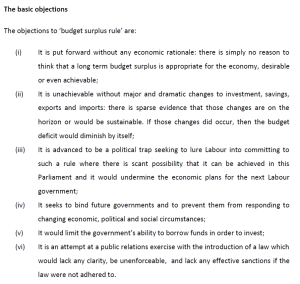Paul Mason’s Capitalism
Paul Mason today gave a ‘sermon’ (they even made us sing hymns!) on what he describes as Post-Capitalism. Without yet having read his book I wanted to address a few of his points based on his talk. Therefore some of my issues and criticisms may be cleared up at a later date. I find it ironic that he describes post-capitalism as being based on the shareholder economy which arises through voluntarism, yet the talk cost £20 per ticket and was followed by a book sign afterwards, which was also sold – but hey, we haven’t reached the post-capitalist state yet!
My first criticism with the whole idea (I think the same as Iain Martin’s) is that he seems to describe capitalism as an ideology, when in fact it is simply a system to distribute scarce resources. [...]

